We dance
By Kinya Kaunjuga
Imagine it’s your last $2, you’ve got nine children and your husband recently died.
You’re sick and haven’t been able to go out and work so there’s nothing to eat. Today was especially difficult and it seemed getting up from bed just took too much energy despite putting up a front for the kids almost all day. Taking breaks to catch your breath out of sight so they didn’t notice how weak you felt was easy during the day because you could shoo them out of the house to go play with their friends. But as dusk crept in, the kerosene lamps would need refilling to light the house and the last of the porridge had been eaten yesterday.
You dig out the 200 shillings buried in the mound of soil underneath your bed and clasp the bill in your hand. It seems to choke in your grip like the knot in your chest that is tightly holding back your tears. You clear your throat loudly telling yourself this is not the time to show the children your weakness. They gather around you sensing you’re about to make plans for the evening meal.
Gazing at their faces, you reflect on how all your sons got their father’s wide nose and catch yourself wishing your daughter hadn’t got his broad shoulders. Above his tapered torso, it had given him an irresistible look with the ladies and on her, it provided an unfettered balance to carry twice as many debes as other children when fetching water. This let us have just enough water for washing all her brothers and for drinking when I couldn’t leave the house any longer. God must have a sense of humor.

We were so in love. I was the envy of all the high-school girls when he asked me to be his wife. Not just because he was handsome but everyone in the village knew he came from a hard working family. During long school breaks, parents would send their children to work on his family’s farm to ensure they had a role model to teach them how to till the land, care for animals and raise their own children off the land.
That had been our plan. We would work and live off the portion of land his parents had given him. Nine children had never seemed many when we were together and surrounded by his parents, chickens and stems of maize rustling and swaying in the fields as if their dance could beckon the rain.
And we danced too. At every chance we got, we hummed and sang and ploughed and planted. When he decided to go in search of work in the city, our last crop had completely dried up and there was nothing to harvest due to a prolonged drought.
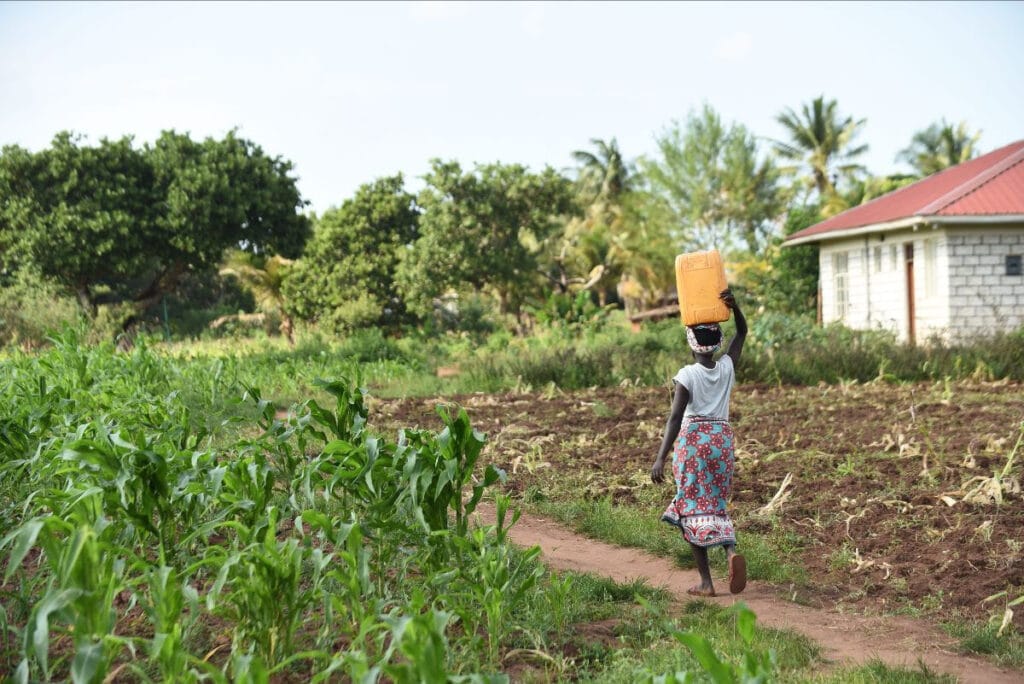
The tales he told when we spoke on phone were hard to understand because I could not imagine children stealing to get by. Where were their families, I’d ask him? He would explain they didn’t earn enough to feed their children or pay school fees so young boys found ways to survive including crime. Looking back, I had been so shielded from the hardships faced by a lack of income and by a helpless family.
The first time I visited my husband in the city, the bus tout yelling the name of each stop to passengers needn’t have bothered announcing we had reached the slum. With each mile of the journey, the fresh countryside air had been replaced by the pungent stench of human wear and tear, and I realized the hustle and bustle of the city had swallowed the love of my life in its petrifying cost of living.

I was between crisp white sheets and could see a blanket neatly folded at the end of the bed. I thought, my poor children are now orphans – knowing good and well we did not have such bedsheets, let alone a blanket to lavishly spare as a foot rest. As I began to sink into the familiar emotions of grief, I heard the most beautiful sound in all my life, and confirmed that I was indeed in heaven.
The voices seemed to come from deep inside the souls of those singing and I couldn’t help but mouth along with the words. My heart leapt out of the pit I was wallowing in as I carried along with each musical note. “Ameamuka! She’s awake!” Just as suddenly as it had begun, the singing stopped. Someone was shouting. Did they speak Swahili even here in heaven?
Opening my eyes hesitantly, I saw my sons faces peering close to mine and their sister standing behind them, balancing two of her sleeping siblings on each shoulder. Oh those precious strong shoulders. I didn’t know how long I had been there, but that is how I met Uzima White who I call my savior. His medical clinic was my lifeline.
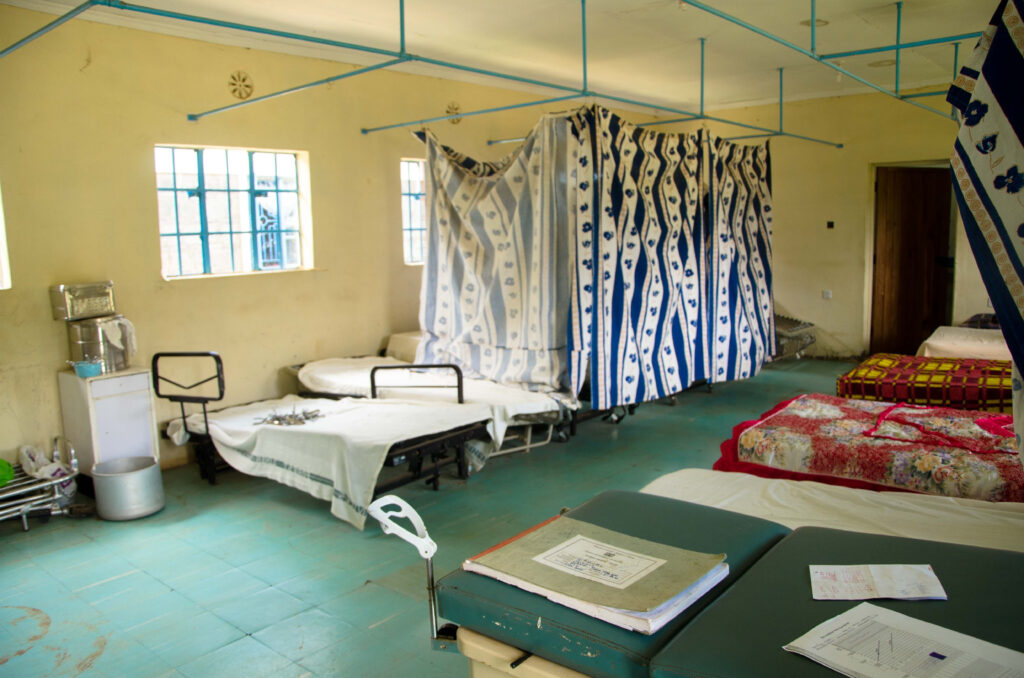
With inaudible instructions from me to go buy food for dinner, the children had rushed to neighbors and asked them for help to take me to hospital. When they reached the only medical clinic in our neighborhood, they offered the owner, White Indimuli, the $2 they had to treat me. Besides treating me for free, he assigned one of his staff to take the children home, and make sure they had a cooked meal that night – and every night for the next many months.
White told me my kidneys were failing and I would no longer be able to work at construction sites doing heavy lifting. Knowing my demise as the sole breadwinner for my children, he offered me a fulltime job as an Askari at the clinic.
For the past four years, I continue to get my medical care from Uzima White Medical Clinic and I have a monthly salary from my employment there. I can pay my children’s school fees and we have plenty of kerosene to light the house and cook every meal. My children say, “Mom, you look so pretty!” One of the boys turns on the little radio in our house, and we dance.
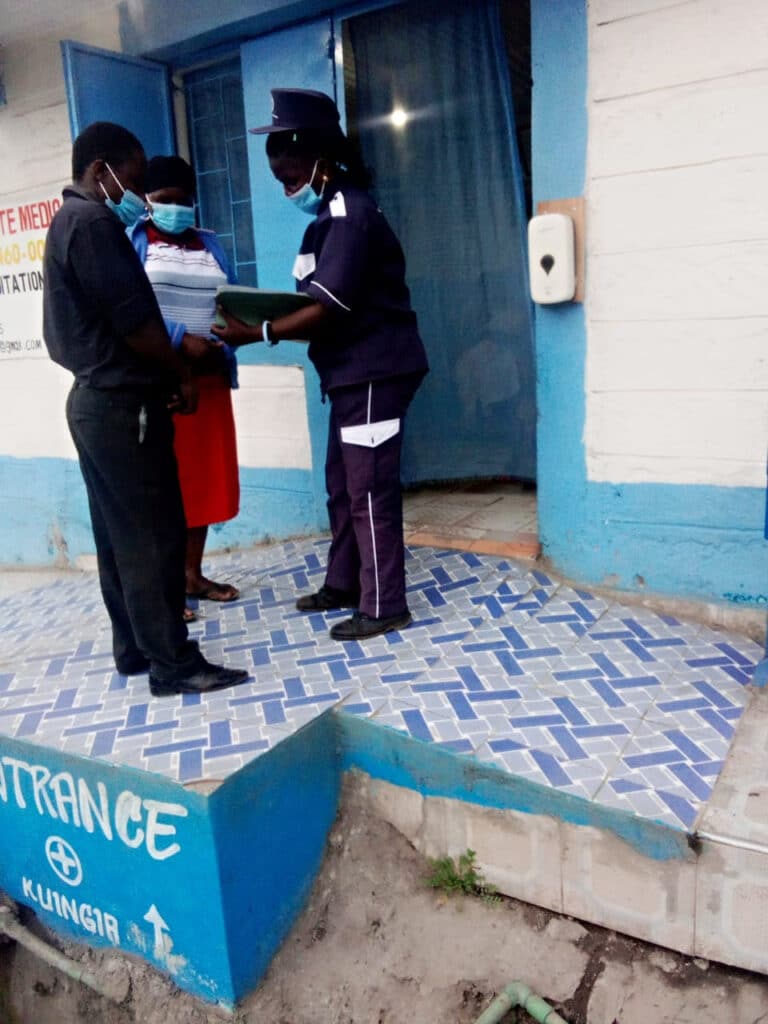
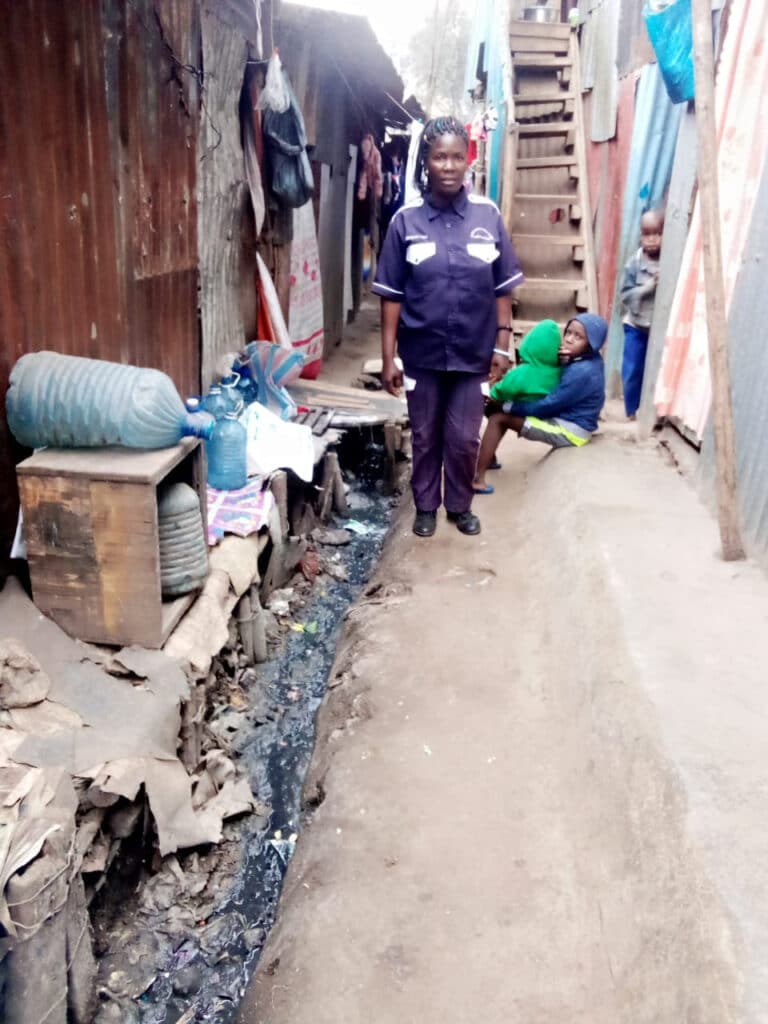
Sound bites
“I did not know my husband had used our land to borrow money and when he was shot by thugs on his way home in the slum, I did not know I would go to live there permanently. My children and I hurried to bury their father and collected the items we could, then moved to his tin house in the city slum, our last available dwelling place. They sold our farm and chased us away.”
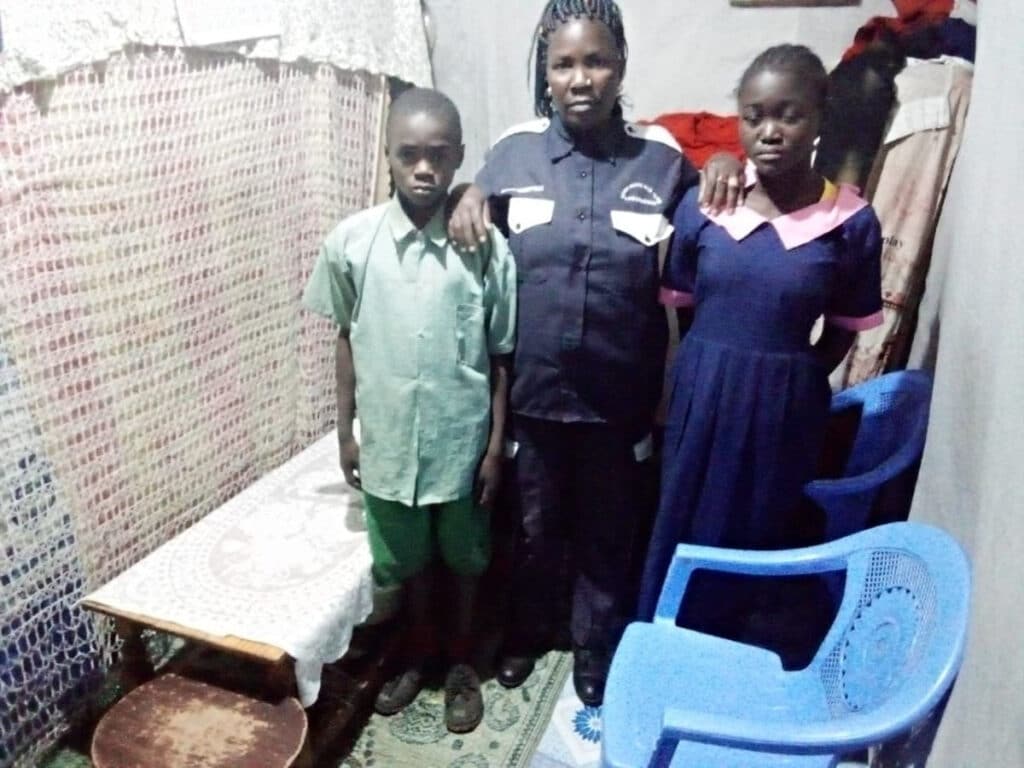
“My goal is to get at least one of my children to complete school so they can earn. My dream is to buy land, move up-country with my children and farm on that land. My message to the world is, I am familiar with the grief and trauma of living in a slum. Out of my nine children, five have died. I was suicidal and wanted to kill myself and my remaining 4 children. So whatever you go through, put God first in all you do,” Amida.
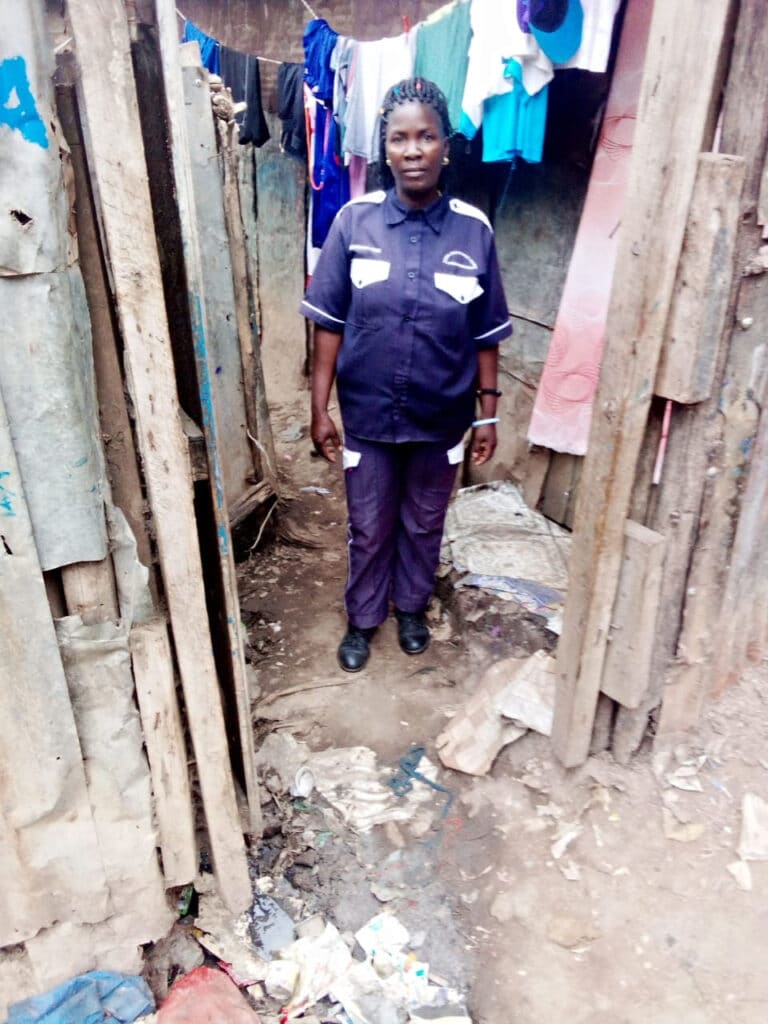
“I love White and want him to succeed because of how kind he is to everyone.”
“He helps even street children who have been hit by cars.”
“He tells all of us staff not to tharau (disrespect) anyone in any way; even a madman – if they come in, they are treated with dignity.”
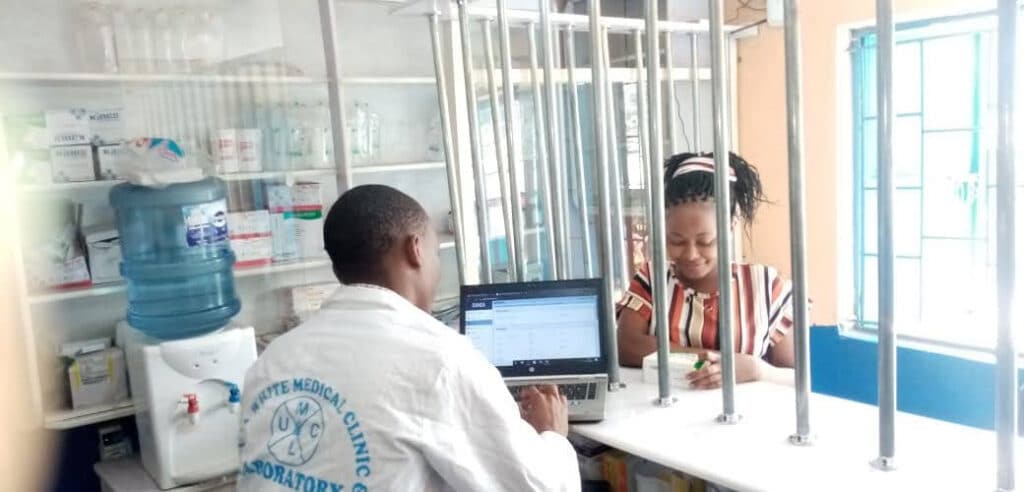
“I’ve worked at Uzima White Clinic since 2015 and during the post-election violence in 2017, they were killing children and mine were at risk because of our tribe; we ran away to the clinic and White gave us a room to live in and hide for that entire time.”
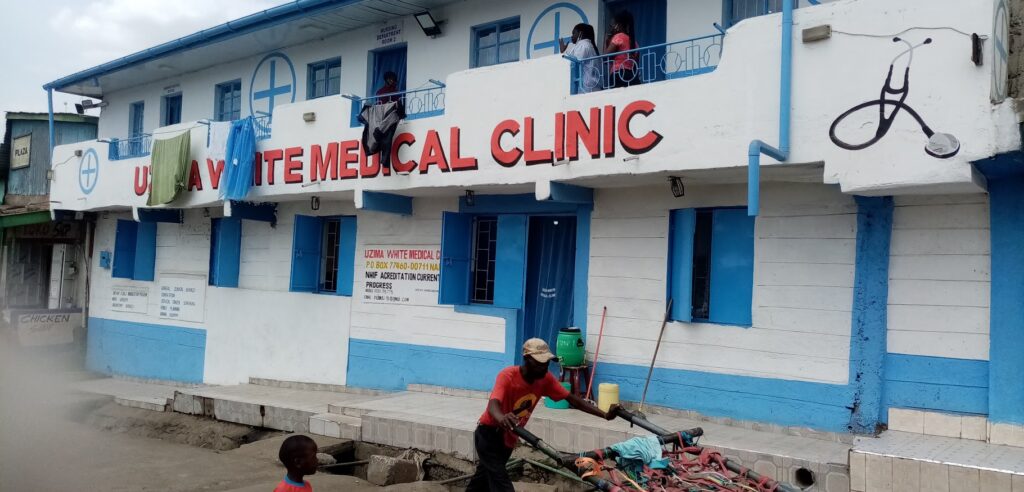
Frontline medical clinics

White Indimuli owns and runs Uzima White Medical Clinic where Amida and Balala (The Black Belt Nurse) are employed.
A frontline medical clinic is the first or second place a person who lives in a slum goes to for medical care.
They began using BandaGo this year and White says, “Before we got BandaGo, we didn’t even know how much we were getting, the number of patients we were serving or how much we spent. But now BandaGo keeps records for us so it is very important because it has really assisted us to realize that we make this, we spend this and now we are happy about this.”
$5000 helps us improve BandaGo
and get it into another clinic!
Through improving BandaGo, technology is actively helping frontline medical clinics continue to provide good healthcare for those living in slums, informal settlements and remote villages.
Thank you for being a part of this journey with us, we couldn’t do it without you!
This story is the fourth and final episode of “Uzima White Clinic – Season One.” Find all the episodes in our Banda Health blog.
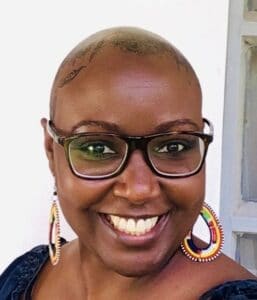
Kinya Kaunjuga
Kinya brings passion, an infectious laugh and her 15 years of experience in the corporate and non-profit world to her role on Banda Health’s operations team.
A Texas A&M alumni with a degree in Journalism and Economics, she says, "I love doing things that matter!"

